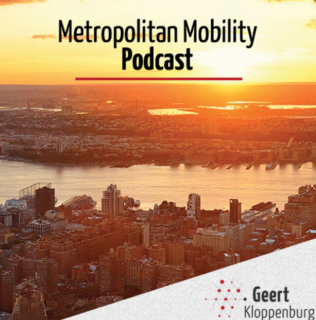How can local governments deal with (technological) innovations? Listen to the #podcast with Karen Vancluysen of POLIS Network: https://bit.ly/mobilitypod
Metropolitan Mobility Podcast with Karen Vancluysen (Polis Network)


How can local governments deal with (technological) innovations? Listen to the #podcast with Karen Vancluysen of POLIS Network: https://bit.ly/mobilitypod
Get notified about new updates, opportunities or events that match your interests.

In 1901, sixteen dairy farmers in the vicinity of Amsterdam, decided to establish the "Ilpenstein" cheese factory. My grandfather, Piet Nieuweboer, was one of the directors of the cooperative. The reason for collaboration within the cooperative? Cheesemaking traditionally takes place at the farm itself. The cheese factory made it possible to use innovative cheesemaking techniques. Even more important was the collaboration to improve the distribution and marketing of the cheese towards customers.
With the course "Biologisch Tuinieren in de Stad", we have trained almost two hundred new urban farmers in the city of Arnhem. Organic urban farmers with a food garden of half a square meter till half a hectare. It is a dream that these organic urban farmers, and others, will eventually find and learn from each other. Our initiative is the establishment and growth of the "Biologische Stadsboeren Coöperatie Arnhem Groen". An organic urban farmers' cooperative focused on economic collaboration in a green Arnhem.

Unmanned systems; Developments & challenges
<strong>Pieter Elands,</strong> Program Manager Unmanned Systems at TNO, is an experienced manager of people and complex research programs. Pieter will share insights into the latest developments and key challenges in the field of unmanned systems. With a strong background in Aerospace and Defence, responsibility for coordinating research on unmanned systems and extensive knowledge of how unmanned systems are deployed in today’s military operations, the talk will explore technological, organizational, and strategic challenges.
Sustainability at the F1 Heineken Dutch Grand Prix
Dimitri Bonthuis is director Media & Sports Development at SportVibes and currently involved in major events like ABN AMRO Open and F1 Heineken Dutch Grand Prix. At the Dutch GP he is responsible for sustainability. This evening, Dimitri will talk about his experiences with sustainability at the Grand Prix, exploring how he approaches the topic, which innovations have been key, the challenges of driving sustainable initiatives, and how these efforts fit into a broader strategic vision.
21.00 Networking with coffee/tea

Michiel Bontenbal will give a practical update on running open source LLM’s locally
De workshop is in het Engels maar we spreken ook Nederlands!

